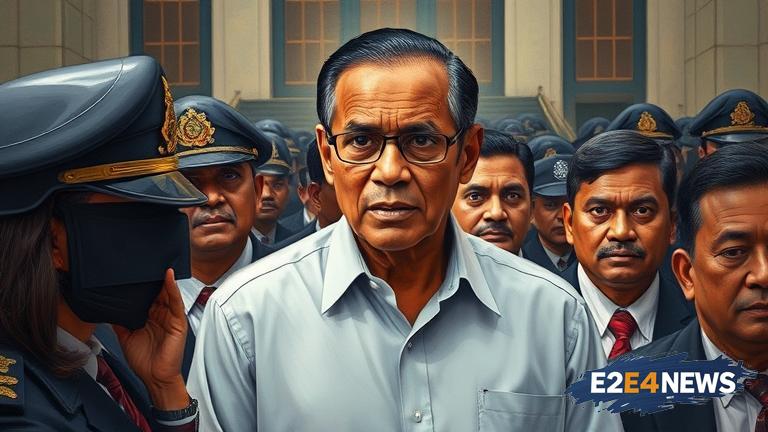The highly anticipated court case of former Sri Lankan President Ranil Wickremesinghe has drawn significant attention, with heavy security measures in place and hundreds of lawyers gathering to observe the proceedings. The case, which is being closely watched by the public and the media, has sparked widespread interest and concern about the future of the country’s political landscape. Wickremesinghe, who served as President from 2015 to 2019, is facing allegations of corruption and abuse of power. The court case is seen as a major test of the country’s judicial system and its ability to hold those in power accountable for their actions. The heavy security presence is a reflection of the high stakes involved, with riot police and armored vehicles deployed to maintain order. The hundreds of lawyers who have gathered to observe the proceedings are a testament to the significance of the case and the widespread interest it has generated. The case has also sparked debate about the role of the judiciary in Sri Lankan politics, with some arguing that the court system is being used as a tool for political revenge. Others have praised the court’s decision to hear the case, saying it is a major step forward for accountability and transparency in the country. The case is also being closely watched by the international community, with many countries and organizations expressing concern about the situation in Sri Lanka. The country has been plagued by political instability and corruption in recent years, and the outcome of the court case is seen as a major factor in determining its future direction. The court case is expected to be a lengthy and complex process, with many witnesses and pieces of evidence to be presented. The prosecution is expected to argue that Wickremesinghe used his position to enrich himself and his allies, while the defense is expected to argue that the allegations are baseless and politically motivated. The case has also sparked controversy about the use of presidential immunity, with some arguing that Wickremesinghe should not be protected from prosecution due to his former position. The court’s decision on this matter is expected to have significant implications for the country’s political system. In addition to the legal implications, the case is also having a major impact on the country’s political landscape. Many politicians and activists are using the case as a rallying cry, calling for greater accountability and transparency in government. The case is also being seen as a major test of the country’s commitment to the rule of law and its ability to hold those in power accountable. The international community is watching the case closely, with many countries and organizations expressing concern about the situation in Sri Lanka. The country has been plagued by political instability and corruption in recent years, and the outcome of the court case is seen as a major factor in determining its future direction. The case is expected to have significant implications for the country’s relationships with other nations, as well as its ability to attract foreign investment and aid. The court case is a major step forward for accountability and transparency in Sri Lanka, and its outcome is expected to have far-reaching consequences for the country’s political system and its people. The case is a reminder that no one is above the law, and that those in power will be held accountable for their actions. The heavy security presence and the hundreds of lawyers who have gathered to observe the proceedings are a testament to the significance of the case and the widespread interest it has generated. The case is a major test of the country’s judicial system and its ability to hold those in power accountable for their actions. The outcome of the case is expected to have significant implications for the country’s future direction, and the international community is watching closely to see how the situation unfolds.
